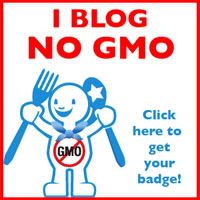
Laboratory studies of ingredients in seven popular flea and tick control products reveal adverse health effects in all animals tested. The effects of these well known and aggressively marketed products range from convulsions, body tremors and labored breathing to thyroid cancer, brain lesions, and liver and lung tumors. Yet TV commercials with trusty looking veterinarians pitch only the happy side of these products.
Which flea and tick pesticide are you using on your dog and/or cat? If your favorite treatment contains the active ingredient Fipronil, Imidacloprid, Methoprene, Permethrin, Pyriproxyfen or the inert ingredient Butyldydroxytoluene, Butylhydroxanisole, Carbitol, Ethanol, or Polyvinlpyrrplidone, you need to know about the not-so-happy side of these products as well.
If you think your veterinarian or local pet store would never sell you such a sinister poison, think again.
Advantage (Bayer Corporation), Adams Spot-On Flea & Tick Control (Farnam Pet Products), BioSpot Flea & Tick Control (Farnam Pet Products), Defend EXspot Treatment (Schering-Plough Animal Health), Frontline Top Spot (Merial Limited), Frontline Plus (Merial Limited), and Zodiac FleaTrol Spot On (Wellmark International) - all contain one or more of the aforementioned active or inert ingredients.
Toxicology and morbidity findings from these pesticide products were gathered over a decade of laboratory testing by the United States Environmental Protection Agency; Occupational Safety & Health Administration, U.S. Department of Labor; Extension Toxicology Network; Journal of Pesticide Reform; Pesticide Action Network North America and other sources, with additional information supplied by Material Safety Data Sheets.
Most testing was performed for the benefit of new product manufacturers in order to qualify for EPA registration. Scientists overdose laboratory animals to determine how much of the product will kill 50% of the test population. Information is then extrapolated and assumptions made that may apply to domestic animals and human beings.
According to laboratory tests, Fipronil (Frontline Top Spot and Frontline Plus) is a neurotoxin and suspected human cancer agent. Fipronil can cause liver toxicity, thyroid cancer, kidney damage, raised cholesterol, lack of coordination, labored breathing, miscarriages and stunted offspring.
Laboratory testing of Imidacloprid (Advantage) on mice, dogs and rats shows this insecticide to be neurotoxic to laboratory animals, also causing a breakdown of coordination, labored breathing, lesions of the thyroid, reduced birth weight, and increased birth defects.
The synthetic broad spectrum pyrethroid insecticide Permethrin (Adams Spot-on Flea & Tick Control; BioSpot Flea & Tick Control; and Defend EXspot Treatment) shows indications of being an endocrine disrupter and the cause of lung cancer and liver tumors in laboratory animals.
Methoprene and Pyriproxyfen (Zodiac FleaTrol Spot On; and BioSpot Flea & Tick Control) are known as insect growth regulators (IGR), both of which restrict the growth of fleas to the juvenile stage where reproduction is not possible. Laboratory testing reveals that Methoprene causes enlarged livers and degeneration of the kidneys.
Unfortunately, few people actually read EPA test results. Fewer still want to hear about the many laboratory test subjects (unwanted dogs and cats) killed during and after the studies in order to determine damage to specific systems and organs. But it only takes a few people with straightforward thinking to bring about change. Are you ready to stop this insanity? There are effective alternatives, as you know.
Today there are totally natural flea and tick remedies - completely harmless to kids, pets and the environment - made from pure botanical essential oils. Some natural products work fairly well, some don't, and some work much better than the toxic stuff!
The mode of action - the way these natural remedies kill fleas and ticks - is to disrupt the insect's ability to function by blocking a substance called octopamine. In nature, certain plants have developed a natural defense against bugs. These "octopamine blockers" in plants are extracted as oils and used as active ingredients. Octopamine is to an insect what adrenalin is to a human. When blocked from the system, the insect quickly dies. No muss, no fuss. Nobody gets hurt but the bug.
Please begin today to stop supporting the heartless laboratory testing of innocent animals, the insidious cover-up and rush to market of big business, and the unwitting harm we may be doing to our children, our pets, and our planet.
Please check out the natural flea and tick remedy I recommend most highly, TripleSure, by clicking on the link below.
All Natural - Gary Le Mon's day job is in the insured financial services industry, but his evenings and weekends are spent crusading for animal rights, contributing to dog and cat rescue efforts, and making the Earth a greener, friendlier place to live. Learn more
Article Source: http://EzineArticles.com/?expert=Gary_Le_Mon





















